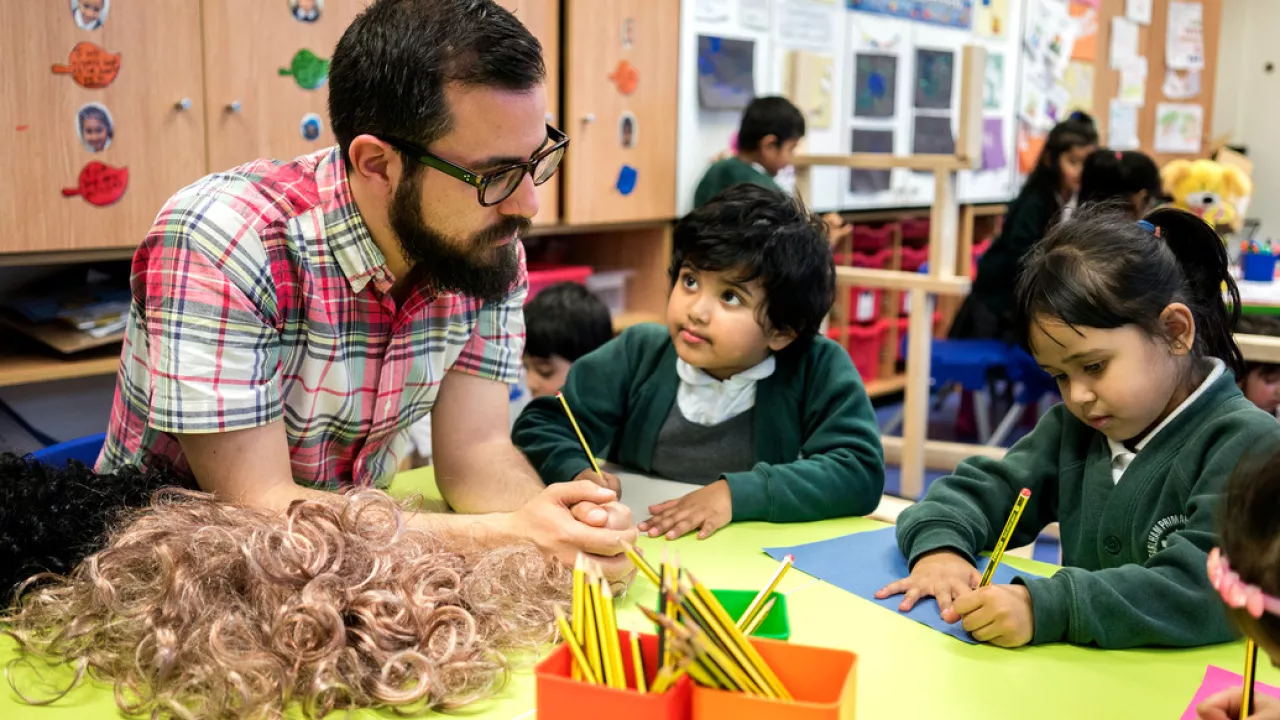Early Childhood Education in Lebanon
Early Childhood Education in Lebanon
Background
The project ‘Towards early childhood education by 2030 for all children in Lebanon’ explored how Lebanon can promote equitable access to early childhood education for 3- to 5-year-olds and for Syrian child refugees.
Since 2011 Lebanon has been hosting approximately 1.5 million refugees from the Syrian conflict, about half of whom are children. It has the world’s highest concentration of refugees per capita. Lebanon aims to integrate these refugees, including Syrian refugees, into its public schools. Currently 50 % of pupils there are Syrian refugees.
The Lebanese Ministry of Education and Higher Education’s 2015 and 2016 Reaching All Children with Education (RACE I and II) plans offer all children aged 3 to 18 free education. Yet few Syrian child refugees aged 3 to 5, or their poorer Lebanese peers, do access quality early childhood education.
The research team intended to learn about improving access to early childhood education from the perspectives of policymakers, NGOs, early childhood teachers and parents of young children.
The team also planned to develop ideas to support Lebanon in achieving United Nations’ Sustainable Development Goal (SDG) target 4.2. This Goal concerns education and its target 4.2 aims to ensure that, by 2030, all girls and boys have access to good quality early childhood development, care, and pre-primary education so that they are ready for primary education.
Long term, the team hopes that the findings and benefits of this study may not only promote the status of early childhood education in Lebanon, but ultimately extend across the Middle East and reach other child refugee hosting countries.
This project was funded by the British Academy’s Early Childhood Education Programme. This programme is supported under the Global Challenges Research Fund (GCRF). The GCRF supports excellent research with development impact and is part of the UK’s official development assistance (ODA).
Project aims
The project aims were to study the extent to which the early childhood education system offers equal learning opportunities to 3 to 5-year-old Lebanese and Syrian refugee children of different ages, genders and abilities in three regions: Beqaa; Akkar and Tripoli in the north and Saida and Tyre in the south.
Another study aim was an evaluation of the role of governmental and non-governmental organisations in achieving such a system.
In the light of the pandemic’s impact a research aim was added: exploring the impact of the Covid-19 pandemic on the children attending early childhood education and their parents, and on the teachers and schools providing it.
Methods
This cross-disciplinary research collaboration employed a mixed methods research design combining qualitative and quantitative methods. Analysis of government statistics and official documents and a literature review helped contextualize interview data from stakeholders, including policymakers, NGO staff, early childhood teachers and parents of young children. Interviews took place remotely in view of the ongoing pandemic combined with serious political and socio-economic unrest in Lebanon since 2019.
This evidence was used to develop strategy and policy recommendations to enhance early childhood education access and maximize the chances of Lebanon achieving Sustainable Development Goal target 4.2 by 2030.
Briefing materials on the study findings will be made available in English and Arabic.
Publications
Briefing materials and other publications on the study's emerging findings in English and Arabic can be found below.
They include a policy brief for policymakers and NGO representatives who spoke to the research team; a report for the low-income Lebanese and Syrian refugee parents who participated in this project and a report for the headteachers and teachers who were interviewed for this research. While our research participants formed the primary audience for the reports, these publications may also be of interest to other national and international policymakers and researchers.
A recent article on the project published in UK practitioner magazine Nursery World can be found on the Nursery World website.
The project team
The project team consisted of:
- Professor Eva Lloyd
Principal Investigator - Dr Katie Wright
Co-Investigator, in the School of Education and Communities at the University of East London, UK; and - Professor Hiam Loutfi
Co-Investigator, at Rafik Hariri University Lebanon.
They were supported in Lebanon by team members Professor Maha Broum, Dr Sally Hammoud and Mrs Fatima Shamdeen and in London by Dr Heather Elliott.
The team was advised on their research by an international Advisory Group which included researchers from universities and research centres in the UK and in Lebanon.
Contact
For further information on this project you are welcome to contact:
In the UK: e.lloyd@uel.ac.uk; k.e.wright@uel.ac.uk
Stratford Campus, Water Lane
London
E15 4LZ UK
In Lebanon: Lotfihr@rhu.edu.lb
